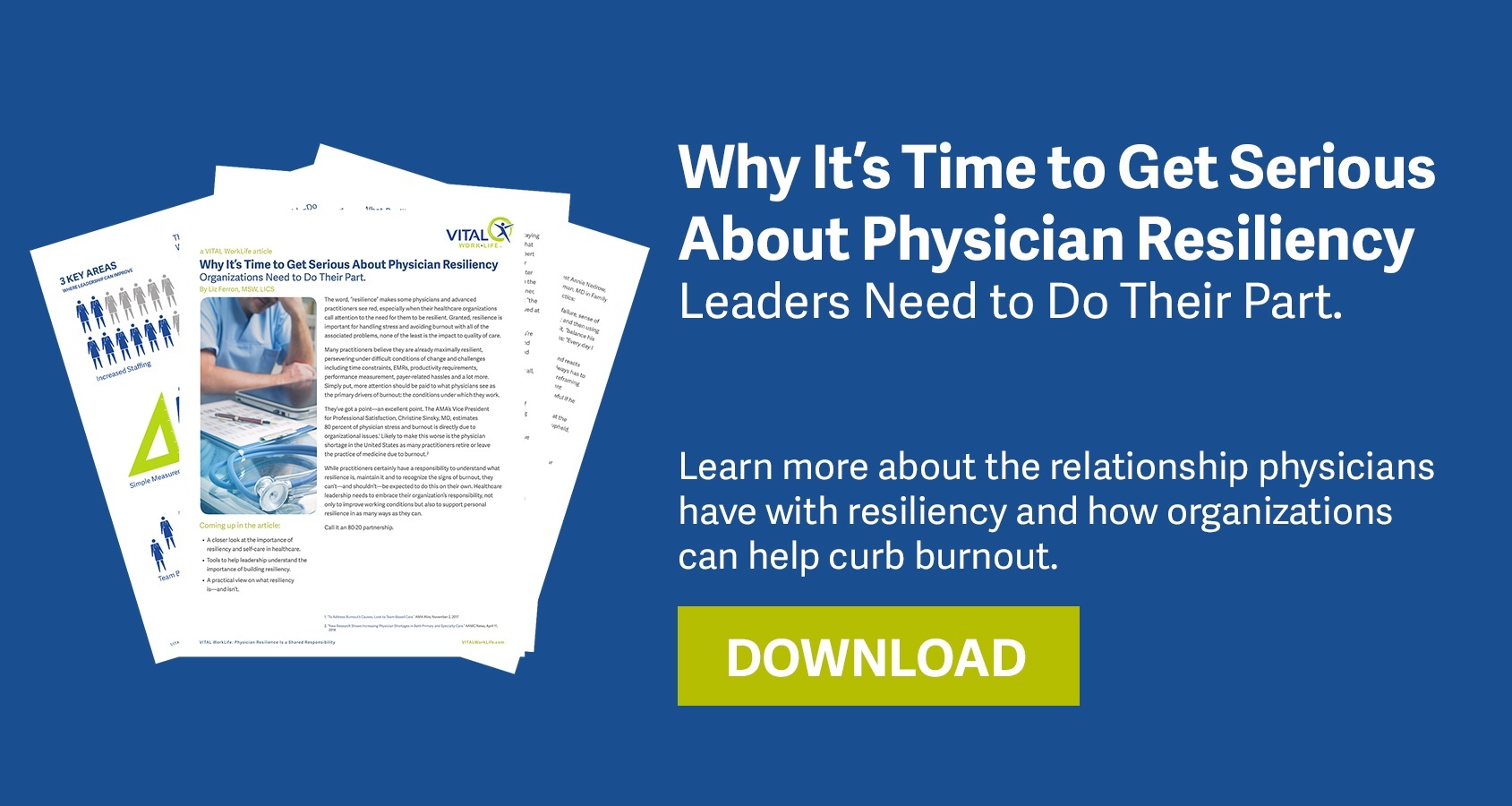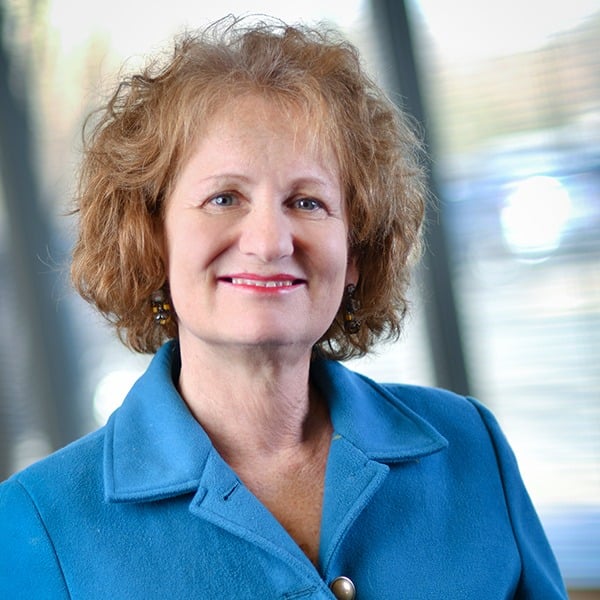
The word "resilience"—as a compliment or a directive—is not always well-received by physicians. For many, especially when it’s connected with resilience training, it implies:
1) Criticism of their performance, while they can point to their profession’s well-deserved reputation for performance at peak levels over long hours, in the face of severe stress.
2) An abdication of responsibility by healthcare organizations for the institutional conditions making the practice of medicine difficult and causing stress and burnout.
Writing on the MedPage website KevinMD, Rebekah Bernard, MD suggests physicians need less resilience—defined as compliance with unreasonable institutional demands—not more. “It’s time to end our resilience to the demands of third parties,” she writes. “It’s time to say ‘no’ to intrusions that add zero value to our workflow. We must no longer roll over when asked to do more for less pay, fewer resources, less time.”
Brian Bohman, MD and colleagues at Stanford University acknowledge the frustration of physicians asked to bear personal responsibility for becoming resilient under today’s conditions. “In this context,” they write, “it is counterproductive to ask physicians to ‘heal themselves’ through superhuman levels of resilience even as the practice environment continues to deteriorate. However, the majority of interventions and research related to physician wellness have focused on personal resilience (e.g., mindfulness), while organizational interventions are more difficult and are only beginning to emerge.”
Dr. Bohman’s article, “Physician Well-Being: The Reciprocity of Practice Efficiency, Culture of Wellness, and Personal Resilience,” gives voice to an emerging point of view defining resilience not as mere individual endurance but in the broader context of physician well being an area the organization and the physician both bear joint responsibility.
The article concludes on this note of shared responsibility: “All of us who work in health care owe it to ourselves, to our patients, and to the next generation to work together to improve our practices, our culture, and ourselves.”
Want to learn more about what well being solutions are working and how you can help your physicians & advanced practitioners? Download our article now!



